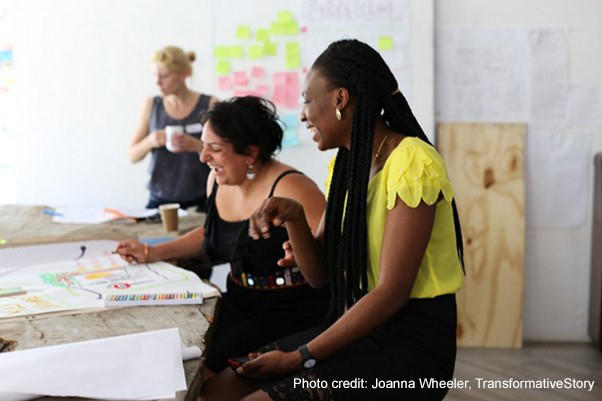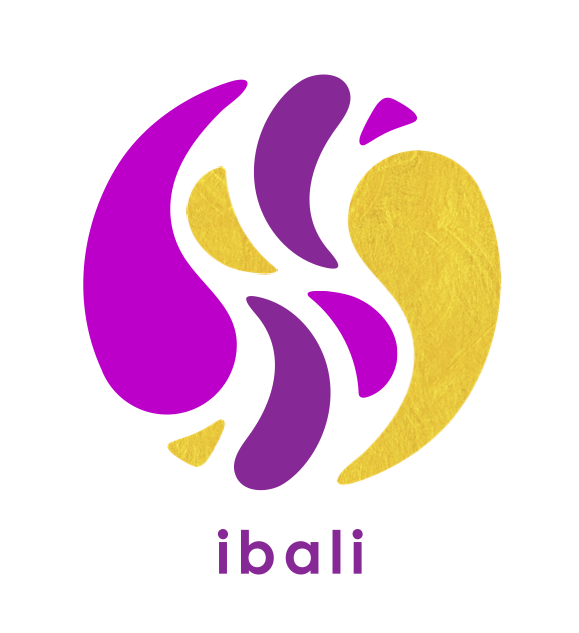You are here
- Home
- Research
- Networks
- Ibali
- Blogs
- Storytelling research in international education and development: a resistance to, or reproduction of coloniality?
Storytelling research in international education and development: a resistance to, or reproduction of coloniality?
10 October 2022
by Alison Buckler, Jennifer Agbaire, Joanna Wheeler, Faith Mkwananzi, Yusra Price
Storytelling is gaining popularity as a methodology in the field of international education and development. It is seen to offer an antidote to modernist, big-data research that positions people at the centre of interventions as homogenous and, instead, connect the field with ‘real’ versions of people. Advocates claim that it is inclusive, flattens hierarchies of power within research, is enjoyable, therapeutic, highlights inequality, sparks personal, social and political change, aligns with indigenous ontologies, exposes and challenges majority narratives and lifts research out of exclusionary academic spaces to engage wider publics.
We are a collective of education and inclusion researchers working in Nigeria, South Africa and the UK embarking on a new AHRC-funded project on storytelling. Through our research using storytelling approaches across a range of studies, over several decades, we have seen evidence of its positive potential. But we have also seen that positive outcomes are not always guaranteed. Storytelling research carries risks in relation to ethics, participant and facilitator well-being, the reproduction of colonial ways of knowledge generation and the reproduction of colonial domination over ways of knowing. The idealisation of storytelling research can reinforce inequality rather than challenge it.
We met through the Ibali Network – an AHRC/GCRF-funded initiative that brought together storytelling academics and practitioners from across the world (but with a particular focus on Sub-Saharan Africa). Through Ibali we identified that early career education and development researchers in African institutions are often steered towards data sciences and away from the creative arts. When storytelling is positioned as an ‘appropriate’ and ‘traditional’ approach for research in lower-income countries, but students in higher-income countries are privileged in relation to learning about creative, arts-based approaches, it entrenches the idea that not only are the ‘solutions’ to challenges in education seen to lie within higher-income country institutions, capacity for researching these challenges creatively is too.
Furthermore, there is at least an element of transparency around how the ‘big data’ that dominates much of international education and development research limits diverse ways of knowing. We suggest that the framing of storytelling by higher-income countries (especially those which have a history of colonial domination) as an appropriate research approach for lower-income countries (especially those which have been colonised) gives the impression of valuing diverse ways of knowing, but risks controlling what kinds of stories and storytelling are used and/or are useful. Many storytelling approaches in development research draw on techniques popularised in the 1970s and 1980s by high-income country researchers and practitioners, which echoes what Sally Falk Moore called an ‘inescapable epistemological paradox’: mediating indigenous ways of knowing through non-indigenous means. Shenila Khoja-Moolji suggests that development research that platforms ‘voice’ represents an obsession with dialogue and is often used in a way that is incompatible with the epistemologies and genuine needs of research participants. Storyfied depictions of lives can be tokenistic, romanticised or reductive (or all three). On the other hand, as argued by Linda Tuhiwai Smith and Boaventura de Sousa Santos, the use of more ‘authentic’ and ‘local’ storytelling approaches carries risks of exploitation, co-optation and appropriation.
So, does storytelling research reproduce or resist coloniality? The question can feel paralysing, but we are working together to respond to this question by interrogating, challenging, refining and improving our storytelling practice. We are developing a storytelling research study with young people and teachers in Nigeria, South Africa and the UK that is empirically focussed on ideas and experiences of educational inclusion/exclusion. However, in parallel we are planning a critical exploration of this storytelling work, undertaken by three ethnographers trained in the UK, South Africa and Nigeria respectively. The ethnographers will individually and collaboratively document and analyse the storytelling process exploring how the researchers and participants make sense of storytelling as a meaningful approach to researching and articulating people’s lived experiences.
We do not consider this to be an autoethnography, but an iterative, critically reflective and dialogical research design where we are committed to learning about how we carry out and communicate storytelling research and committed to sharing this learning by researching ‘in the open’. We will do this through an online Storytelling Research Hub (coming soon!) which will bring together ideas and debates on different ways of using story in education and development research, and the challenges, strategies and possibilities involved. The Hub will also showcase ideas from across our network around how researchers and practitioners can work more critically and creatively with storytelling approaches in specific contexts.
Ultimately, while we are passionate about storytelling research, we recognise that more critical work needs to be done to support researchers to engage in a process that is more epistemologically, geo-politically and ethically informed – especially when they are working across contexts and especially when they are working under the banner of ‘development’ work.
.jpg)

